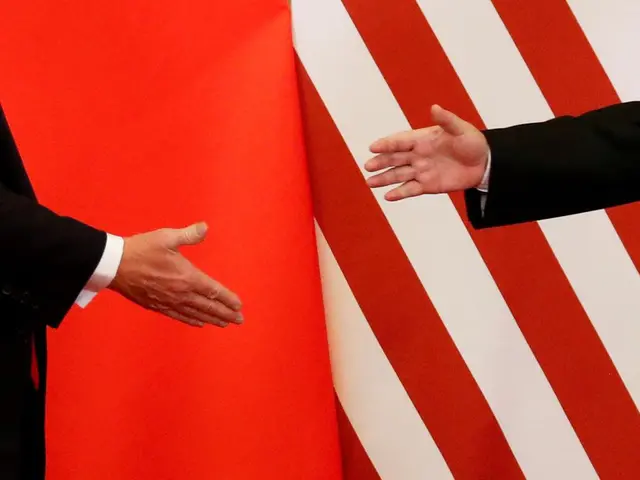The Chinese ambassador to the United States said on Friday that Japanese Prime Minister Shinzo Abe's visit to a controversial war shrine is a deliberate political act aimed at reversing the verdict of history on World War II.0
PKG
In a joint interview with Washington-based Chinese-language media, Cui Tiankai, the Chinese ambassador to the U.S. said the international community should not allow Abe to disrupt the post-war order and lead Japan back to the catastrophic path of militarism.
Cui said Abe's visit to the Yasukuni Shrine on December 26th was not an isolated individual act, but rather a deliberate act with clear political aims.
The Chinese ambassador said Abe once served in the cabinet of former Prime Minister Junichiro Koizumi, whose multiple visits to the shrine during his 2001-2006 term gravely strained Japan's relations with China and South Korea.
SOUNDBITE: CUI TIANKAI, Chinese Ambassador to the U.S.
"The Yasukuni Shrine honors fourteen A class convicted Japanese war criminals in the World War II, including Iwane Matsui, a former Japanese commander who ordered the Nanking massacre in 1937 that murdered more than 300,000 Chinese, and wartime Prime Minister Hideki Tojo, who was directly responsible for the surprise attack on the U.S. Pearl Harbor in 1941. By paying respects to such convicted war criminals, Abe apparently aimed at reversing the historical verdict on the World War II, during which China and the U.S. were anti-fascist allies, and retaking the old road of militarism."
The Chinese envoy also said Abe knew very well the sensitivity of such visits and the severe damage it could cause to Japan's ties with its Asian neighbors.
SOUNDBITE: CUI TIANKAI, Chinese Ambassador to the U.S.
"We hope all members of the international community with the sense of righteousness to take a clear stand against Abe's wrong actions. We shall not allow the reversal of the post-war order, which was built on the sacrifice of tens of millions of lives; we shall not allow the repetition of the tragic sufferings that Japan's aggressions brought to Chinese, Korean and American peoples in those years; and we shall not allow Abe to lead Japan in the wrong direction once again."
Commenting on Washington's expression of disappointment with Abe's shrine visit and reiteration of its alliance with Japan, Cui said that, as a responsible power, Washington should take a responsible stand on major issues of principle.
He said it doesn't serve the United States' interests if there is someone in Japan attempting to reverse the historical verdict on World War II.
After Shinzo Abe visited the controversial war shrine, Chinese Foreign Ministry spokesman Qin Gang said Chinese leaders will not have any dialogue with the Japanese Prime Minister.
Meanwhile, several social organizations in Taiwan protested against Abe's visit to the Yasukuni shrine in front of the Taipei Office of Interchange Association of Japan.
Protesters chanted slogans such as "Abe honored war criminals, challenge to justice of history" and "Japanese militarism endangers peace in Asia."
The Republic of Korea said it "cannot help but deplore and feel anger over" Abe's shrine visit that took place despite concerns and warnings by neighboring countries.
Abe's visit is the first by a serving Japanese prime minister since 2006.
Former Japanese Prime Minister Junichiro Koizumi's annual visits to the shrine during his tenure from 2001 to 2006 were a major factor that affected ties between Japan and its Asian neighbors.
 简体中文
简体中文

